And the sign said…
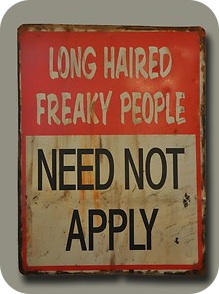 Is it just me, or does everybody have some sort of label? Anxiety disorder, sleep disorder, mood disorder, depression… Do you know anybody who doesn’t have something ‘wrong’ with them? Wait – correction: do you know anybody who doesn’t say they have something ‘wrong’ with them?
Is it just me, or does everybody have some sort of label? Anxiety disorder, sleep disorder, mood disorder, depression… Do you know anybody who doesn’t have something ‘wrong’ with them? Wait – correction: do you know anybody who doesn’t say they have something ‘wrong’ with them?
Let’s get one thing straight:
Mental disorders are real – very real. These problems require proper medical attention and the toll they take on both the suffering individual and their family/friends is at best stressful and at worst devastating. So let’s not get it twisted: just because Prayers and Apples supports holistic treatment (improved nutrition, increased physical activity, spiritual involvement) as a first choice measure, or combined treatment element, in addressing generalized anxiety and mood disorders does not mean that I think these disorders don’t exist, don’t need classified or aren’t as serious as they, in fact, truly are.
I don’t have a problem with diagnostic labels – I have a problem with everybody and their brother randomly passing them out!
Besides, today’s post is more about Paris Hilton
Remember when Paris Hilton always used to say, “That’s hot!”? (I guess a more appropriate first question would’ve been: does anyone remember Paris Hilton?) I’m sure there was probably a day, once upon a time, way back in 1995, when Paris Hilton saw a really great purse or the cutest dress ever and she said, “That’s hot!” And it was. And she meant it. And it was a perfect thing to say. Flash forward to 2006, and if you asked Paris Hilton what she thought of mortgage-backed securities, she’d answer, “That’s hot!” (Speaking of which: if you haven’t seen Margin Call with Kevin Spacey and Demi Moore, you need to get your Netflix on – great movie!)
Are mortgage-backed securities really ‘hot’? Demi does her best, but even in the movies, the answer is still: no. So why would Paris Hilton ever say anything say that?
Because, after enough time, that’s just what she got used to saying.
On the real…
According to the 2005 National Comorbidity Survey Replication, the lifetime prevalence of anxiety disorders among American adults is 63.36 million (meaning 28.8% of the population ages 18 and older will experience the disorder at some point in their life). The lifetime prevalence of mood disorders is 45.76 million (or 20.8%); according to a 2011 report from the National Center for Health Statistics, approximately one in every ten Americans takes an antidepressant – an increase of almost 400% between 1988-1994 and 2005-2008.
The National Comorbidity Survey Replication also indicates that about half of Americans will meet the criteria for a DSM-IV (Diagnostic and Statistical Manual of Mental Disorders) label sometime in their life.
Setting aside the legitimate argument that within recent years the medical community has been passing out diagnostic labels like lollipops…
As you can see: We’ve got enough problems, without Bobby-At-The-Bar diagnosing his ex-girlfriend with schizophrenia
And since when did we all become doctors? When did psychological assessments start taking place in bars? It’s like we all watched one too many episodes of Dawson’s Creek and now think that if we just talk fast and use big words, we can toss around any type of Wikipedia-style psychological jargon we want and the weight of what we say will get lost in some hipster whirlwind of cynical pop culture observations. (See how fast you slip into it?)
It’s not okay, people. I don’t care how seductive the temptation for alliteration or how profound you think you’re going to sound after you link your roommate’s behavioral problems to unresolved issues from her childhood (sit down, Freud – maybe she just likes to date around) – casually assigning labels only hurts the people to whom they actually apply.
This sounds like something from Reading Rainbow
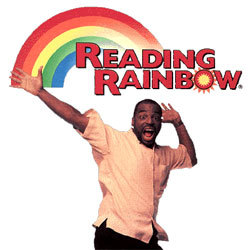 I’m not kidding: words matter – and especially words like these. You think throwing around terms like “schizophrenic” every time someone changes subjects abruptly is going to make someone who actually suffers from that disorder feel good? How comfortable would you be if a manic episode brought you this-close to hospitalization and then you had to listen to your best friend describe his ‘crazy’ boss as ‘bipolar’? You don’t know everything that people go through – but you should know enough to be considerate, just in case.
I’m not kidding: words matter – and especially words like these. You think throwing around terms like “schizophrenic” every time someone changes subjects abruptly is going to make someone who actually suffers from that disorder feel good? How comfortable would you be if a manic episode brought you this-close to hospitalization and then you had to listen to your best friend describe his ‘crazy’ boss as ‘bipolar’? You don’t know everything that people go through – but you should know enough to be considerate, just in case.
Not to mention – going back to that whole lollipops and labels thing: overuse and misapplication of these terms does nothing but add to the mayhem and dilute authentic definitions…
Why don’t they do what you say? Say what you mean, Oh! One thing leads to another…
I said earlier that I don’t have a problem with labels – just their usage – and I meant it. As Butcher, Hooley & Mineka (2010) explain:
Classification is important in any science, whether we are studying chemical elements, plants, planets or people. With an agreed-upon classification system, we can be confident that we are communicating clearly.
So let’s take a look at some common uses of diagnostic labels and the DSM-IV-TR (written by people who actually know what they’re talking about) and double-check that we’re really communicating clearly.
Because I think we all might be suffering from a little of the Paris-Hilton-It’s-Hot Syndrome…
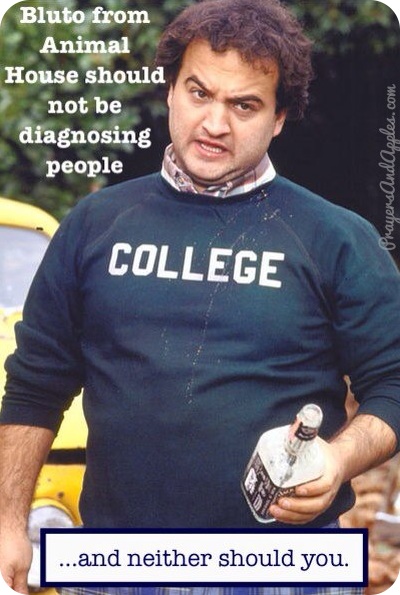 OMG! I’m so OCD right now!
OMG! I’m so OCD right now!
Oh, you’re suffering from obsessions that are defined by 1) recurrent and persistent thoughts, impulses or images that are experienced at some times as intrusive and inappropriate, that are 2) not simply excessive worries about real-life problems, that you 3) try to ignore or suppress with another thought or action and 4) recognize as a product of your own mind? Or compulsions that are defined as 1) repetitive behaviors you feel driven to perform in response to an obsession that are 2) aimed at preventing some dreaded event or situation?
No? You’re just annoyed someone disorganized your sock drawer?
You’re not OCD.
(And by the way, you can’t “be” OCD, you have OCD.)
He’s like seriously bipolar
Your boyfriend changed his mind about whether he wanted to hang out tonight or not. I can totally see how you’d assume he had the presence or history of one or more manic or mixed episodes (characterized by full-blown manic and major depressive episodes for at least one week, with symptoms being either intermixed or alternating rapidly). What’s that? He doesn’t? And he doesn’t have the presence or history of one or more major depressive episodes either?
That’s so weird? I could’ve sworn you just said he was bipolar…
I’m for real about to have a panic attack
Really?! You’re experiencing a discrete period of intense fear in which four or more of the following symptoms develop abruptly and reach a peak within 10 minutes?!
- Palpitations or pounding heart
- Sweating
- Trembling or shaking
- Sensations of shortness of breath or being smothered
- Feeling of choking
- Chest pain or discomfort
- Nausea or abdominal distress
- Feeling dizzy, lightheaded, or faint
- Derealization (feelings of unreality) or depersonalization (being detached from oneself)
- Fear of losing control or going crazy
- Fear of dying
- Paresthesias (numbness or tingling sensations)
- Chills or hot flushes
Didn’t think so.
Calm down, the previews always last at least ten minutes.
I have an anxiety disorder
I saved this one for last because I think it’s the most egregious example of our Paris-Hilton-It’s-Hot Syndrome. (Yes, I just used a word like ‘egregious’ and Paris Hilton in the same sentence. That just happened.)
I could fill a whole blog post with thoughts on this topic (I’ve already filled quite a few!) but, for now, let’s keep things simple. If you have an anxiety disorder, riddle me this: What kind?
Hint: There’s seven primary types.
(Hint-hint: If you didn’t know that, you probably don’t have an anxiety disorder – or at least you haven’t been formally diagnosed.)
Wow, where did that come from?
I know this post is a little more passionate than usual but, as Jason Segel’s dad says in The Five Year Engagement: “It had to be said.” (And, as I say in real life: GO RENT THAT MOVIE!)
I think the overuse and misapplication of these terms is a major problem that stays a problem because no one realizes it’s an issue. So hopefully this post will help change that. Being careful about using diagnostic labels isn’t about being uptight or politically correct – it’s just about speaking responsibly and being considerate of other people’s feelings.
No, I meant that ‘Long Haired Freaky People’ picture
Oh. Right. Five Man Electrical Band :)
…and if one of those heading titles didn’t make sense, you should probably check out The Fixx ;)
I need to start including a musical reference section! LOL :)
References
American Psychiatric Association. (2000). Diagnostic and Statistical Manual of Mental Disorders, Fourth Edition, Text Revision (DSM-IV-TR).
Begley, S. (13 July 2012). In the age of anxiety, are we all mentally ill? Reutgers.
Butcher, J., Hooley, J., and Mineka, S. (2010). Abnormal Psychology (14th ed.). Clinical Assessment and Diagnosis (p. 129). Boston: Allyn and Bacon.
Kessler, R.C., Berglund, P., Demier, O. Jin, R., Merikangas, K.R. & Walters, E.E. (2005). Lifetime prevalence and age-of-onset distributions of DSM-IV disorders in the National Comorbidity Survey Replication. Archive of General Psychiatry, 62(6): 593-602.
National Institute of Mental Health. Statistics: Any Anxiety Disorder Among Adults. Retrieved: 4 February 2013.
Pratt, L.A., Brody, D.J. & Qiuping G. (2011). Antidepressant Use in Persons Aged 12 and Over: United States, 2005-2008. Centers for Disease Control and Prevention.
U.S. Department of Health & Human Services. NIH Fact Sheets: Mood Disorders. National Institute of Mental Health.
Wehrwein, P. (20 October 2011). Astounding increase in antidepressant use by Americans. Harvard Health Publications.

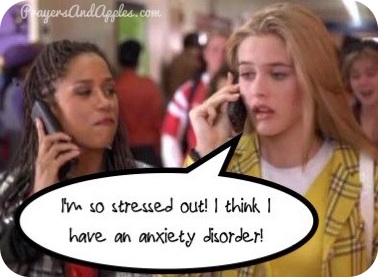
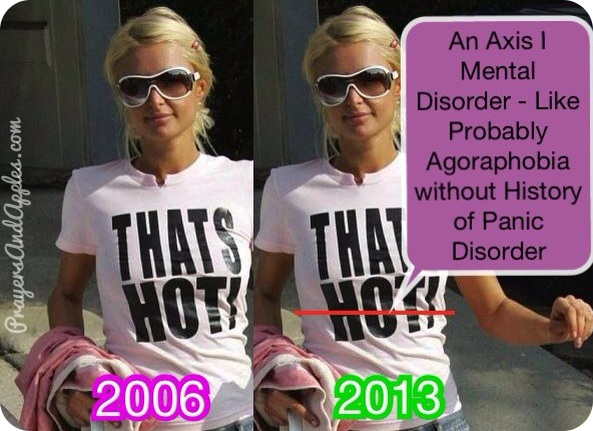
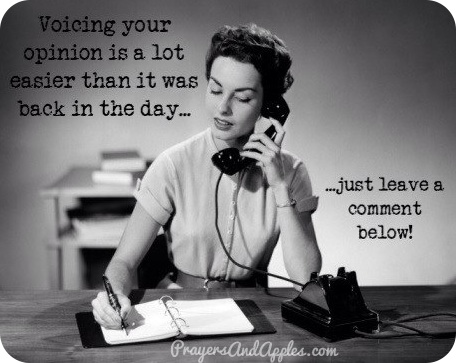

This is so informative!! I have to admit, I used to throw around the term OCD all of the time. Until one night I watched this special on children with all of the above type disorders and I told myself never again! These children broke my heart and why would I compare my need to be organized and perfectionist with what they were having to deal with. Great great post!
I know – I’m not 100% innocent myself! All of these terms have become such a casual part of our language that I think it’s really easy to lose sight of just how significant they are to a lot of people! Any effort we can make to protect other people’s feelings is a good thing :) Hope your morning’s off to a good start! :)
I loved this article! I’m so guilty! Literally yesterday I read an article in Womens Health magazine on “a health-draining cycle called apathy” and later told my friend I’m apathetic! I know it’s not a disorder, but just the fact that I gave myself a label is pretty ridiculous!
Yea, it totally goes beyond disorders – we’re all so quick to put names on everything! We need to just live and let live a little bit more, and stop worrying about what it’s called ;)
Fantastically written and it gave me a giggle. I have been known to say a few of the things you pointed out here (OCD, panic attack). *guilty* – I appreciate you putting things back into perspective. I think we’re all becoming a little too dramatic and self diagnostic when trying to describe how we feel.
I’m all about the giggles :) hehe ..glad you liked it! :)
Throwing around clinical terms can water down their seriousness. It’s like depression and anxiety are basically no big deal. I’ve noticed people downplay those terms (i.e. “He’s just depressed. He just has anxiety.”). People also claim to be depressed or anxious to avoid responsibility. I’ve noticed that too. I guess I’ve noticed misuse in both directions (minimization or exaggeration). Hmmm.
P.S. Oh & I’ve reread my comment a few times to make sure it’s just right. I’m so OCD. Heh. Kidding!!! Couldn’t resist.
You’re so right: it goes both ways (exaggeration and minimization) – these disorders *are* a big deal, so we need to make sure their labels don’t get diluted! …lol you’re too cute! :)
Wonderfully written.You are a gifted writer.
Thank you so much! …Wasn’t having the best night & your comment *really* cheered me up! :) Glad you enjoyed the article :)